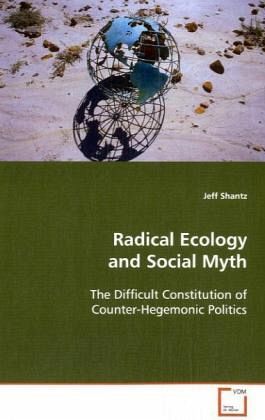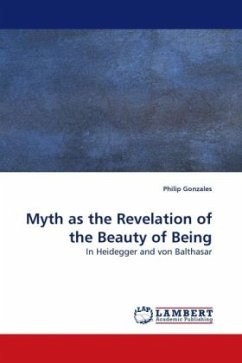
Radical Ecology and Social Myth
The Difficult Constitution of Counter-Hegemonic Politics
Versandkostenfrei!
Versandfertig in 6-10 Tagen
32,99 €
inkl. MwSt.

PAYBACK Punkte
16 °P sammeln!
Radical ecology has emerged as a potential point forlinkage, or nodal point, of a wide plurality ofanti-systemic struggles. Many have long expectedthat the "nature-society" question will provide themost likely focus for a coalescence of new socialmovements into a broadened counter-hegemonicmovement. However, one problem persists. Ecology asnodal point of solidarity has been marked byconflict. Examining ecology exposes a rathertroubled mythopoetic, for which even a tentativefixing of radicalizing struggles has proveddifficult. Nature can be articulated to widelyranging interpretations and disco...
Radical ecology has emerged as a potential point for
linkage, or nodal point, of a wide plurality of
anti-systemic struggles. Many have long expected
that the "nature-society" question will provide the
most likely focus for a coalescence of new social
movements into a broadened counter-hegemonic
movement. However, one problem persists. Ecology as
nodal point of solidarity has been marked by
conflict. Examining ecology exposes a rather
troubled mythopoetic, for which even a tentative
fixing of radicalizing struggles has proved
difficult. Nature can be articulated to widely
ranging interpretations and discourses and can be
deployed for vastly different purposes. This
provides for the strength of nature as a realm of
freedom but paradoxically leaves it open to
discourses of unfreedom. This book adapts Georges
Sorel's theory of social myths to examine radical
ecology as a point of convergence for social
movements. In doing so it makes an important
contribution to understandings of environmentalism
and social movements more broadly. An innovative
work it will be of great interest for students of
social theory and politics as well as anyone involved
in environmental activism.
linkage, or nodal point, of a wide plurality of
anti-systemic struggles. Many have long expected
that the "nature-society" question will provide the
most likely focus for a coalescence of new social
movements into a broadened counter-hegemonic
movement. However, one problem persists. Ecology as
nodal point of solidarity has been marked by
conflict. Examining ecology exposes a rather
troubled mythopoetic, for which even a tentative
fixing of radicalizing struggles has proved
difficult. Nature can be articulated to widely
ranging interpretations and discourses and can be
deployed for vastly different purposes. This
provides for the strength of nature as a realm of
freedom but paradoxically leaves it open to
discourses of unfreedom. This book adapts Georges
Sorel's theory of social myths to examine radical
ecology as a point of convergence for social
movements. In doing so it makes an important
contribution to understandings of environmentalism
and social movements more broadly. An innovative
work it will be of great interest for students of
social theory and politics as well as anyone involved
in environmental activism.












